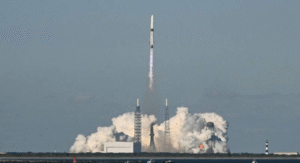Milei’s Libertarian Bloc Scores Big Wins in Argentina’s Midterm Elections
President Javier Milei’s libertarian movement, La Libertad Avanza, scored a commanding victory in Argentina’s midterm elections, solidifying his political power and delivering a crucial boost to his controversial economic reform agenda.
The results mark a major relief for the Milei administration, which had faced growing public frustration over austerity measures aimed at curbing decades of fiscal mismanagement. Analysts said the outcome suggests that despite painful spending cuts, many Argentines still prefer stability over a return to the inflationary chaos of past governments.
“Argentines have made it clear that they don’t want to return to the model of failure,” Milei declared to supporters in Buenos Aires, celebrating what he called a “triumph beyond question.”
Political observers described the outcome as both a vote of confidence and endurance. Gustavo Córdoba, head of Zuban Córdoba polling firm, said the public had chosen patience over panic. “Many people are willing to give Milei more time,” he noted. “The victory is unquestionable.”
With the latest results, Milei’s party has secured around one-third of the seats in the Chamber of Deputies, ensuring the president retains enough legislative strength to block any attempt to overturn his vetoes. This gives him greater freedom to push forward with deep structural reforms, deregulation, and privatization plans that have polarized the nation.
Economic impact and investor response
Despite intense criticism over spending cuts and subsidy removals, Milei’s policies have shown early signs of success. Inflation — which once exceeded 12% before he took office — has dropped sharply to 2.1% last month. Argentina has also reported a rare fiscal surplus, a milestone attributed to Milei’s aggressive cost-cutting and pro-market policies.
Global investors have reacted positively. Marcelo García, Americas Director at Horizon Engage, said the strong midterm results give Milei “the political capital needed to protect his decrees and advance his reform agenda,” adding that confidence among foreign investors is now “measurably higher.”
Strengthened ties with Washington
Milei’s alignment with Washington, particularly the Trump administration, has played a key role in stabilizing Argentina’s financial position. The U.S. extended a support package worth up to $40 billion, which includes a $20 billion currency swap and a proposed $20 billion debt facility.
While official U.S. reactions to the election results remain reserved, analysts suggest that Washington sees Milei’s success as a validation of his fiscal discipline and pro-market strategy.
In Buenos Aires province — historically a Peronist stronghold — La Libertad Avanza won 41.5% of the vote against 40.8% for the Peronist coalition, signaling a seismic shift in Argentina’s political landscape. Nationally, Milei’s party expanded its representation in the House of Deputies from 37 to 64 seats.
Turnout stood at about 68%, lower than previous elections, a factor some analysts believe worked in Milei’s favor as austerity-weary voters opted to stay home.
Political scientist Maria Laura Tagina summed up the moment: “The results show that Argentines are willing to endure short-term pain for long-term stability — a rare outcome in a country that has long been haunted by economic turbulence.”













